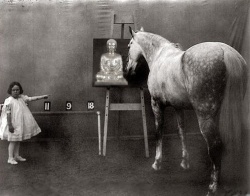Difference between revisions of "SN 22.110 Araham Sutta"
Jump to navigation
Jump to search
| Line 4: | Line 4: | ||
Maurice O'Connell Walshe}}<br/><br/> | Maurice O'Connell Walshe}}<br/><br/> | ||
| − | [As above (in SN 22.109):] "And when, [[monks]], a [[monk]], having seen as they really are the [[arising]] and the passing away, the attractiveness and the [[danger]], and the [[deliverance]] from the five [[groups of clinging]], is released without [[clinging]], he, [[monks]], is called a [[monk]] in whom the [[cankers]] are destroyed, who has lived the [[life]] to [[perfection]], done what had to be done, put down the [[burden]], gained the [[highest]] goal, worn through the [[fetters]] of [[rebirth]], and is {{Wiki|liberated}} by perfect [[insight]]."[1] | + | [As above (in SN 22.109):] "And when, [[monks]], a [[monk]], having seen as they really are the [[arising]] and the passing away, the attractiveness and the [[danger]], and the [[deliverance]] from the five [[groups of clinging]], is released without [[clinging]], he, [[monks]], is called a [[monk]] in whom the [[cankers]] are destroyed, who has lived the [[life]] to [[perfection]], done what had to be done, put down the [[burden]], gained the [[highest]] goal, worn through the [[fetters]] of [[rebirth]], and is {{Wiki|liberated}} by {{Wiki|perfect}} [[insight]]."[1] |
==Notes== | ==Notes== | ||
Latest revision as of 07:43, 9 March 2015
Araha.m Sutta: The Arahant
translated from the Pali by
Maurice O'Connell Walshe
[As above (in SN 22.109):] "And when, monks, a monk, having seen as they really are the arising and the passing away, the attractiveness and the danger, and the deliverance from the five groups of clinging, is released without clinging, he, monks, is called a monk in whom the cankers are destroyed, who has lived the life to perfection, done what had to be done, put down the burden, gained the highest goal, worn through the fetters of rebirth, and is liberated by perfect insight."[1]
Notes
1. The whole phrase is a standard description of the Arahant found at many places in the Canon.
